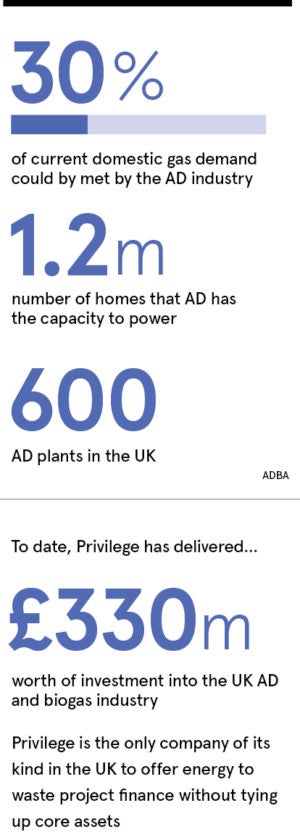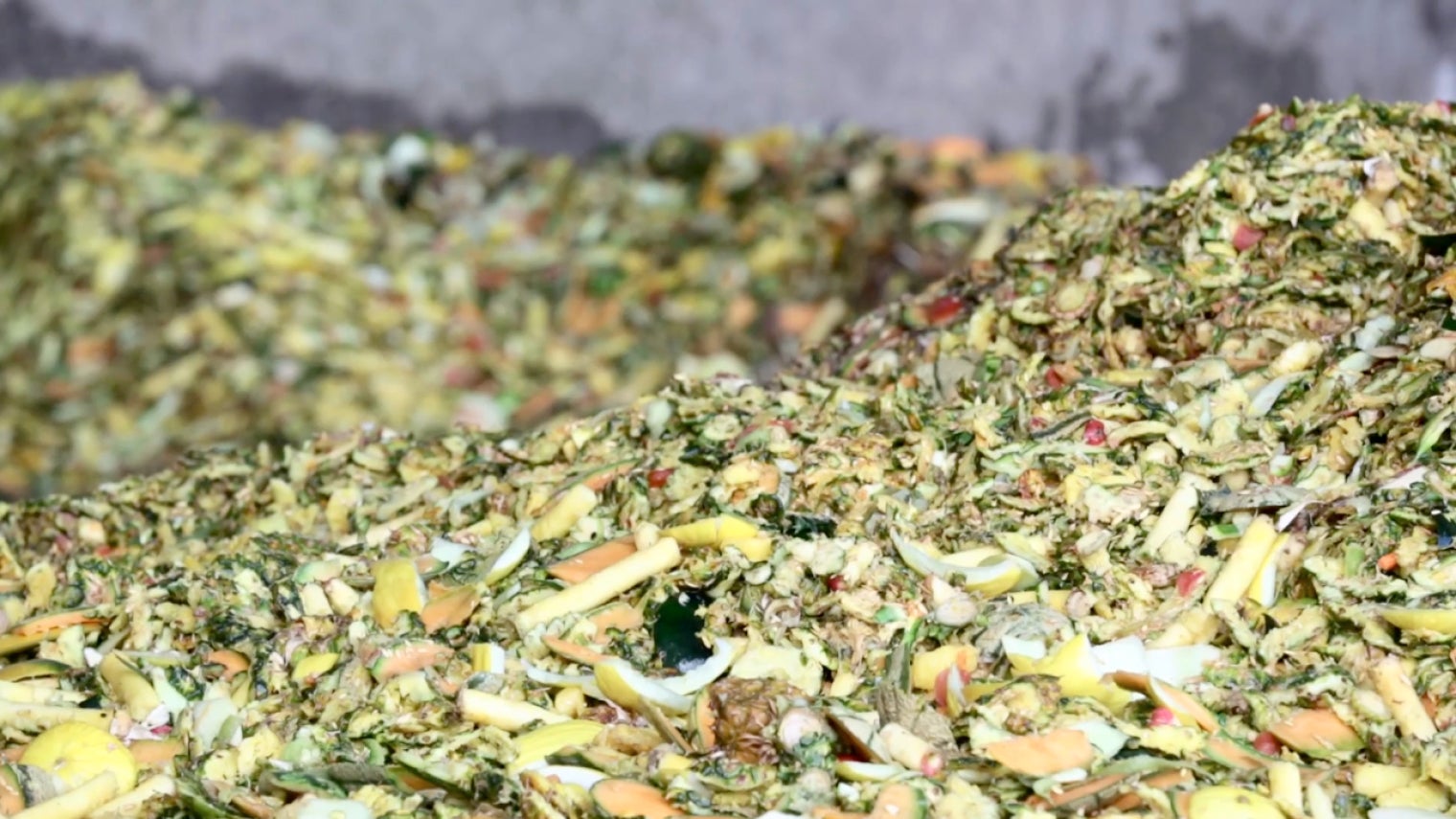Anaerobic digestion (AD), a process that takes waste and through the build-up of bacteria in a closed system creates biogas, has demonstrable success as a green source of heating and electricity.
There are now more than 600 AD plants in the UK, covering on-farm, food processing and domestic food waste sectors, with 70 commissioned in 2017 alone. The industry is clearly well placed for an acceleration in growth, partly because of its effective processes, but also because it will contribute significantly towards decarbonising energy supplies and reducing the scale of waste taken to landfill.
 These benefits are already seen as significant locally and nationally, but their importance is only likely to increase as government and businesses continue to put ever-greater emphasis on environmental issues. In addition to heat or electricity, new technology in the biogas industry means this green gas can also be used to make hydrogen and potentially diesel and aviation fuels, further capturing the attention of investors looking for strong growth.
These benefits are already seen as significant locally and nationally, but their importance is only likely to increase as government and businesses continue to put ever-greater emphasis on environmental issues. In addition to heat or electricity, new technology in the biogas industry means this green gas can also be used to make hydrogen and potentially diesel and aviation fuels, further capturing the attention of investors looking for strong growth.
“There are a whole host of areas in which we as a funder actively engage with technology providers to look at optimising and bringing new technologies to market, so every type of by-product that comes from waste can be exploited,” explains Phil Gerrard, chief executive of Privilege Finance.
Privilege Finance is currently one of the foremost funders of energy-from-waste schemes in the UK. In partnership with its key funding partner Prestige Funds, it has invested more than £300 million to produce in excess of 60 megawatts of energy from AD projects. It understands the sector has huge untapped opportunities, including the potential to meet almost a third of domestic gas demand, given waste volumes across the country.
Opportunities from the technology are many: gains for investment backers, usable and sellable energy for food and agriculture businesses, decarbonisation of the National Grid, and reduction in the reliance on landfill sites from local authorities, food processors and agri-businesses.
With far fewer people funding the initial builds than the refinancing, there’s a major growth opportunity in this market for funders with the commensurate experience and track record
Biogas facilities, once up and running, can give a year-round supply of energy that saves them money, while any excess energy generated can be sent to the National Grid for financial return. AD plants do not rely on weather conditions, unlike solar or wind farms, and this vastly affects their consistency of generation. “We can be looking at over 90 per cent uptime compared to wind turbines, which depend on the right conditions to be effective,” says Mr Gerrard.
An example of the more than 30 plants Privilege Finance has invested in is Brigg Lane Biogas in Lincolnshire, a site that will process 75,000 tonnes of liquified food waste every year, which would have ordinarily gone to landfill. In context, this would be enough green gas to heat more than 6,000 homes.
Benefits of reducing the disposal burden are also clear. In 2017, there were 7.4 million tonnes of biodegradable municipal waste in the UK. Within two years, Scotland is to have a complete ban on sending food waste to landfill and in England local authorities are coming under increasing pressure to reduce their own volumes of waste. The government’s recent announcements will accelerate this process. Generators of waste, alongside local authorities, are therefore looking to change their practices.
AD has been embraced in other countries that have recognised its benefits both to communities and businesses. Given that, so far, the nature of investment in the construction side of the waste-to-energy sector has been relatively niche in the UK, there is a strong opportunity for smart mid-sized and large investors to make gains.
“In addition, much of the debt funding has been concentrated in refinancing facilities once they are running and looking to consolidate,” explains Mr Gerrard. “With far fewer people funding the initial builds than the refinancing, there’s a major growth opportunity in this market for funders with the commensurate experience and track record.”
Privilege Finance is keen to broaden investor perceptions by demonstrating AD’s track record, bringing in numerous backers with an appetite for high growth forms of green energy. To provide long-term opportunities, it takes a “project life cycle” approach through its unique financial product, SCOPE, designed to provide support from inception to completion, thereafter to commissioning and optimisation, and towards refinancing. It also appeals strongly to borrowers, such as farmers or landowners, as it does not tie up their core assets as security for loans.
Mr Gerrard is convinced that a tipping point is likely to be reached very soon that will see the waste-to-energy sector become a strongly appealing area of activity for large investors as they see the returns available and the number of both food and agribusinesses looking to implement the technology.
“In the market over the last two or three years, we’ve provided finance to about 40 per cent of the anaerobic digestion new builds in the UK,” says Mr Gerrard. “We’re looking to bring more debt funders into this construction market to help kickstart the number of plants being developed, and help the government and the grid to meet their decarbonisation and waste reduction targets.
“This is a well-established technology and growing sector that is ideally placed to help countries and governments achieve significant inroads into reducing food waste and decarbonising their economies over the next five to ten years. With the right finance and the integration of new technology, there is clearly massive potential for the sector to play a central role in the green energy revolution.”
To find out more about sustainable opportunities with energy from waste please visit www.privilege.finance


